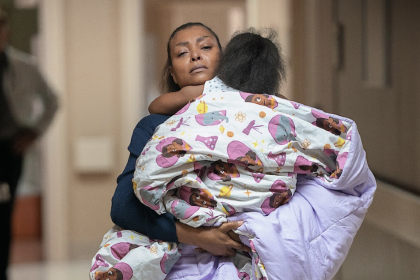
The Center for Black Women’s Wellness (CBWW) was recently awarded funding for their efforts to help prevent teenage pregnancy among Atlanta’s youth. Issued by the U.S. Department of Health and Human Services, the $2.7 million grant is part of a larger federal campaign to reduce teen pregnancy.
The 22-year-old nonprofit was selected from a pool of applicants for the organization’s Teen Health Project, a five-year curriculum aimed at supplying teens with essential life skills and critical education in hopes of reducing pregnancy rates and sexually transmitted diseases.
According to the U.S. Department of Education, Georgia has a high school drop out rate of 37 percent among African American teenagers and nearly a third of the girls drop out due to an unplanned pregnancy.
“We are really excited [about the grant]. We’ve always had this focus with adolescence health and youth development but this [grant] provides a much bigger opportunity to impact youth in this community,” says Jemea Dorsey, CEO of CBWW.
The Teen Health Project will primarily focus on girls between the ages of 12 and 17 that reside in Atlanta metropolitan neighborhoods where teen birthrates are considerably higher than the national average.
Scheduled to launch in 2011, the initiative will provide workshops for the youth and their parents because “when working with the youth, you also have to make special efforts to work with their parents as well,” says Dorsey. The initiative has a leadership component, allowing teens to nominate peers to serve on the Teen Health Council, which will implement activities and events in the community centered around HIV prevention.
“The program not only educates them, but empowers them to do things very actively in the community to prevent HIV,” according to Dorsey, who has been with the organization since 1996.
The CBWW provides affordable health and wellness services for black women and their families, and works closely with the community to provide programs that strengthen and empower women, young girls and the underserved.
–amyr heard
To find out more about how the CBWW is changing lives, visit www.cbww.org.










